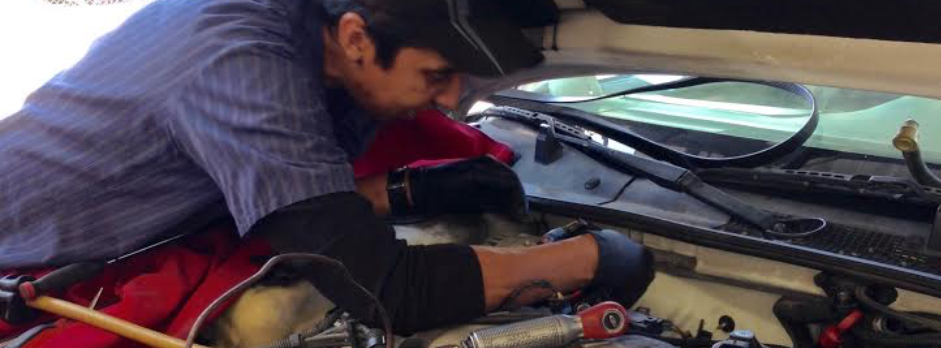

Welcome to Ball Tire Co
 Ball Tire Co provides quality car care in Fresno, CA. We are a family owned business delivering honest and professional automotive repair and auto maintenance services to the people of Fresno and surrounding areas. The quality ASE (Automotive Service Excellence) certified technicians at Ball Tire Co employ today’s latest automotive technology and are equipped to handle all major and minor repairs on foreign and domestic vehicles.
Ball Tire Co provides quality car care in Fresno, CA. We are a family owned business delivering honest and professional automotive repair and auto maintenance services to the people of Fresno and surrounding areas. The quality ASE (Automotive Service Excellence) certified technicians at Ball Tire Co employ today’s latest automotive technology and are equipped to handle all major and minor repairs on foreign and domestic vehicles.
Please be sure to go to our Shop Specials section for our current promotions and specials. Come by and visit our clean and professional shop in Fresno, CA.
we offer all the auto services and tires you need, right here under one roof. We have been in business for over 55 years and pride ourselves on paying special attention to customer service. We provide our customers with personal service they can trust unlike the large corporate stores. When you come to Ball Tire & Automotive you can expect to be greeted with a warm smile, sit in our new waiting room and enjoy a warm cup of coffee or some fresh popcorn. We will take care of your vehicle needs; educate you on what is needed with complete honesty and offer you fair pricing. We offer pick-up and delivery plus free shuttle service.
If you are in need of a new set of tires, we are a certified dealer of Bridgestone and Firestone. We also offer many other brand name tires, just ask. In need of automotive repair or maintenance? We are a NAPA AutoCare Center. We offer alignment, oil changes, water pump replacement, timing belts, fleet service, and most other automotive repairs. We have been serving customers from Clovis, Fresno, Madera and Sanger since 1960! Stop in and see why we are the area’s leading auto service provider.

























